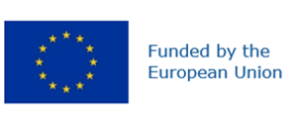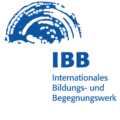
In the new EU project “Remembrance – inclusive”, young people and adults with and without disabilities work together towards a common goal. Interested parties from Germany, Poland, and the Netherlands are jointly developing ideas on how to open up memorial trips to previously disadvantaged groups. Up to 150 participants can contribute their experiences and expertise. The German-Polish cooperation project is jointly organized by the International Education and Encounter Centre gGmbH in Dortmund, the Schwarzenberg Association e.V. in Berlin, and the Stutthof Museum in Poland. People with and without disabilities can now register for the virtual kick-off conference on Tuesday, March 7, 2023.
Memorial trips to places of learning about the history of the Nazi era are considered to be an enriching addition to conventional history education. The cruelty and the arbitrary rule of the National Socialists are often particularly evident at the historical site. However, memorials for the victims of National Socialism and other places of remembrance of Nazi violence are rarely accessible without steps. Texts on historical documents are not always easy to understand. Photos are mostly black and white and not particularly high-contrast. And descriptions in braille or sign language are more the exception than the rule. This not only means that tactile and audiovisual materials are missing for holistic learning, but also the possibility of inclusive participation in accordance with the UN Convention on the Rights of Persons with Disabilities. Because anyone who has long-term physical, mental, intellectual, or sensory impairments that may hinder their full and effective participation in society is considered disabled. Therefore, people with hearing, visual, or mental impairments or learning disabilities are often excluded from memorial trips as a special form of historical-political education.
The German-Polish cooperation project “Remembrance – inclusive” aims to systematically identify the special needs of people with disabilities or impairments using the Stutthof Museum in Poland as an example and raise awareness of the special perspective of those affected. Building blocks will be developed in inclusive collaboration between people with experience and expertise, which will make learning and memorial sites in Germany and abroad more accessible to people with disabilities.
Participants will receive information on the latest findings in inclusive education and learn about good examples from Germany and abroad. The newly developed building blocks for inclusive memorial trips will be tested on a trip to the Stutthof Museum in Poland by 25 young people with disablities. And a public presentation of the results is planned for the end.
The project is divided into eight work units and ends in March 2024. However, interested parties do not have to participate in all modules.
Actors in historical education, students in the fields of inclusive education, cultural and media management, or museum education, as well as adults aged 18 and over from Germany, Poland, and the Netherlands can apply. Teachers from special needs schools and inclusive classes, as well as parents of children with disabilities who wish to contribute their experiences, are particularly encouraged to participate.
The German-Polish partnership project is implemented jointly with the Stutthof Museum in Poland and the Schwarzenberg Association e.V. in Berlin and is funded as part of the EU program “Citizens, Equality, Rights and Values”.
For your registration please use this form.
 Funded by the European Union. Views and opinions expressed are however those of the author(s) only and do not necessarily reflect those of the European Union or Education and Culture Executive Agency (EACEA). Neither the European Union nor the granting authority can be held responsible for them.
Funded by the European Union. Views and opinions expressed are however those of the author(s) only and do not necessarily reflect those of the European Union or Education and Culture Executive Agency (EACEA). Neither the European Union nor the granting authority can be held responsible for them.



